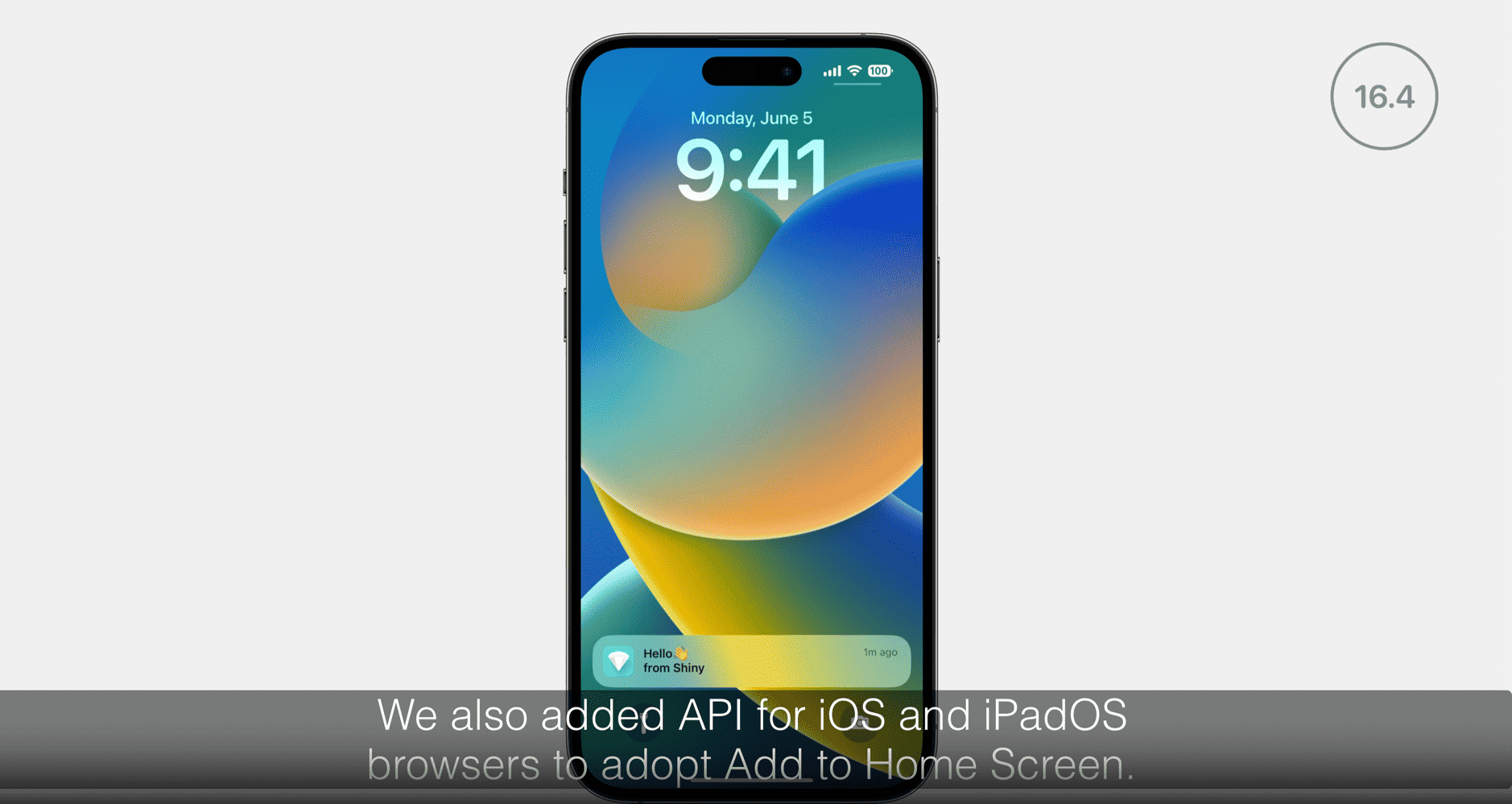Digital Markets Act: In der EU sind Progressive Web App jetzt nur noch Bookmarks
Apple, in ihrer eigenen Frage-Antwort-Sektion über den Digital Markets Act:
The iOS system has traditionally provided support for Home Screen web apps by building directly on WebKit and its security architecture. That integration means Home Screen web apps are managed to align with the security and privacy model for native apps on iOS, including isolation of storage and enforcement of system prompts to access privacy impacting capabilities on a per-site basis.
Without this type of isolation and enforcement, malicious web apps could read data from other web apps and recapture their permissions to gain access to a user’s camera, microphone or location without a user’s consent. Browsers also could install web apps on the system without a user’s awareness and consent. Addressing the complex security and privacy concerns associated with web apps using alternative browser engines would require building an entirely new integration architecture that does not currently exist in iOS and was not practical to undertake given the other demands of the DMA and the very low user adoption of Home Screen web apps. And so, to comply with the DMA’s requirements, we had to remove the Home Screen web apps feature in the EU.
EU users will be able to continue accessing websites directly from their Home Screen through a bookmark with minimal impact to their functionality. We expect this change to affect a small number of users. Still, we regret any impact this change — that was made as part of the work to comply with the DMA — may have on developers of Home Screen web apps and our users.
Seit über einem Jahrzehnt existiert die „Add to Home Screen“-Funktion – quasi ohne Weiterentwicklung. Erst als die Regulierungsanstrengungen der Europäischen Union starteten, baute Apple die Features der Progressive Web Apps aus.

Ich habe keine einzige dieser Web-Anwendungen auf meinem Homescreen, bin jedoch extrem frustriert gegen diesen Angriff auf das offene Web. Eine „kleine Anzahl von Nutzern“ und „keine Zeit für eine Umsetzung“ sind keine Argumente, wenn es um eine so fundamentale Technologie geht.
iOS 17.4 entfernt nicht nur ein einzelnes Feature, sondern setzt ein Statement gegen die Zukunft. Es ist das Gegenteil einer, nennen wir es, „Sweet Solution“1.
- „We have been trying to come up with a solution to expand the capabilities of iPhone by letting developers write great apps for it, and yet, keep the iPhone reliable and secure. And we’ve come up with a very sweet solution.“↩
(Steve Jobs auf der WWDC 2007)